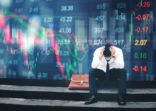“Continued synchronized low interest rate policies by the world’s major central banks will continue to provide liquidity to markets, and in particular benefit risky asset prices,” David Chao, Invesco’s global market strategist, Asia ex-Japan told a Hong Kong media briefing today.
“Monetary easing is typically a great boost to market sentiment,” he added.
Chao favours Asia ex-Japan equities, whose valuations he argued are more attractive than the US, pointing out that there seems to be a “disconnect especially between the US and emerging Asia”.
After falling 2% in 2019, he expects Asia ex-Japan corporate earnings to increase 12% this year, driven by Phase One US-China trade deal optimism, the restocking of depleted inventories and the roll-out of 5G technology which will lead to replacement purchases of many electrical goods.
Nevertheless, despite the fillip given to exporters after the signing of the Phase One agreement, Chao prefers Asian economies that are more “inward-looking”, such as India, Indonesia and Philippines.
“There is also plenty of room for further interest rate cuts in several Asian economies, such as the Philippines, where real policy rates are above historic averages. In addition, inflation rates are low compared with other emerging countries elsewhere in the world,” said Chao.
His main sector bets include consumer discretionary, consumer staples and healthcare, which he regards as major beneficiaries of the long-term demographic trends in the region, which remain on track despite ephemeral distractions that might weigh on asset prices in the short-term.
“The fundamental drivers of Asian economies of rising middle classes, growing affluence and urbanisation are as strong and compelling as ever,” he said.
Beyond coronavirus
Chao believes that investors are already “seeing past the coronavrius” and its temporary impact on economic activity.
Certainly, tourism and real estate (through a decline in hotel bookings) will suffer, most notably in Hong King and Thailand due to their dependence on Mainland Chinese visitors, “but the impact will be greatest in the first quarter of this year,” said Chao.
Tourism receipts account for about 9% of Hong Kong GDP, and visitors from China comprise 75% of arrivals, and in Thailand the figures are 11% of GDP and 30% from China, according to Invesco research.
In Mainland China itself, household consumption is falling and lost working days are hurting manufacturing, but Chao pointed out that demand and economic activity in the first quarter of the year is typically slower than later in the year when production picks up for Christmas.
Meanwhile, he believes that manufacturing sentiment, as measured by recent purchasing managers’ indexes, suggest that it is recovering from its 2019 slump.
Invesco hasn’t yet adjusted its global economic outlook for 2020, but it is likely to include downgrades, said Chao. For the time-being at least, the firm forecasts 3% global GDP growth, 2% in the US and 5.9% in China.
Invesco Asset Allocations


















